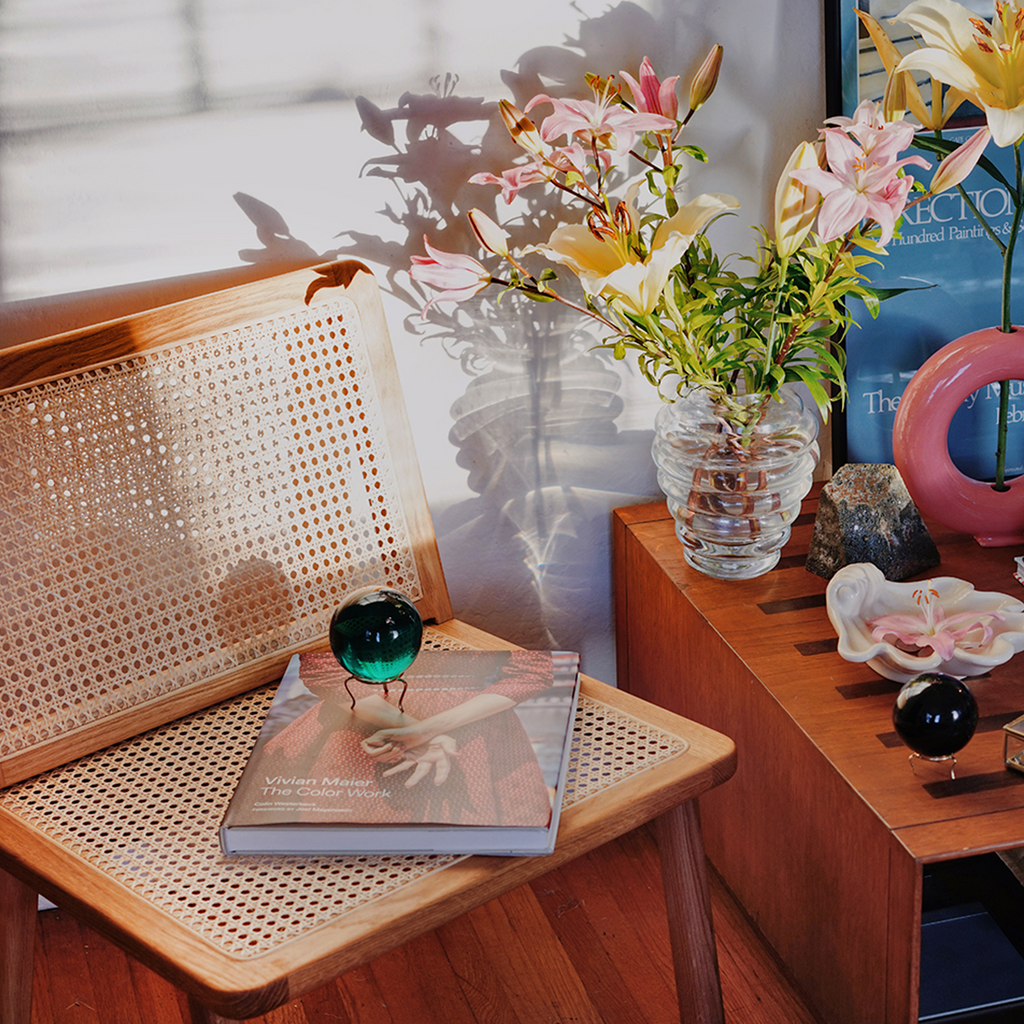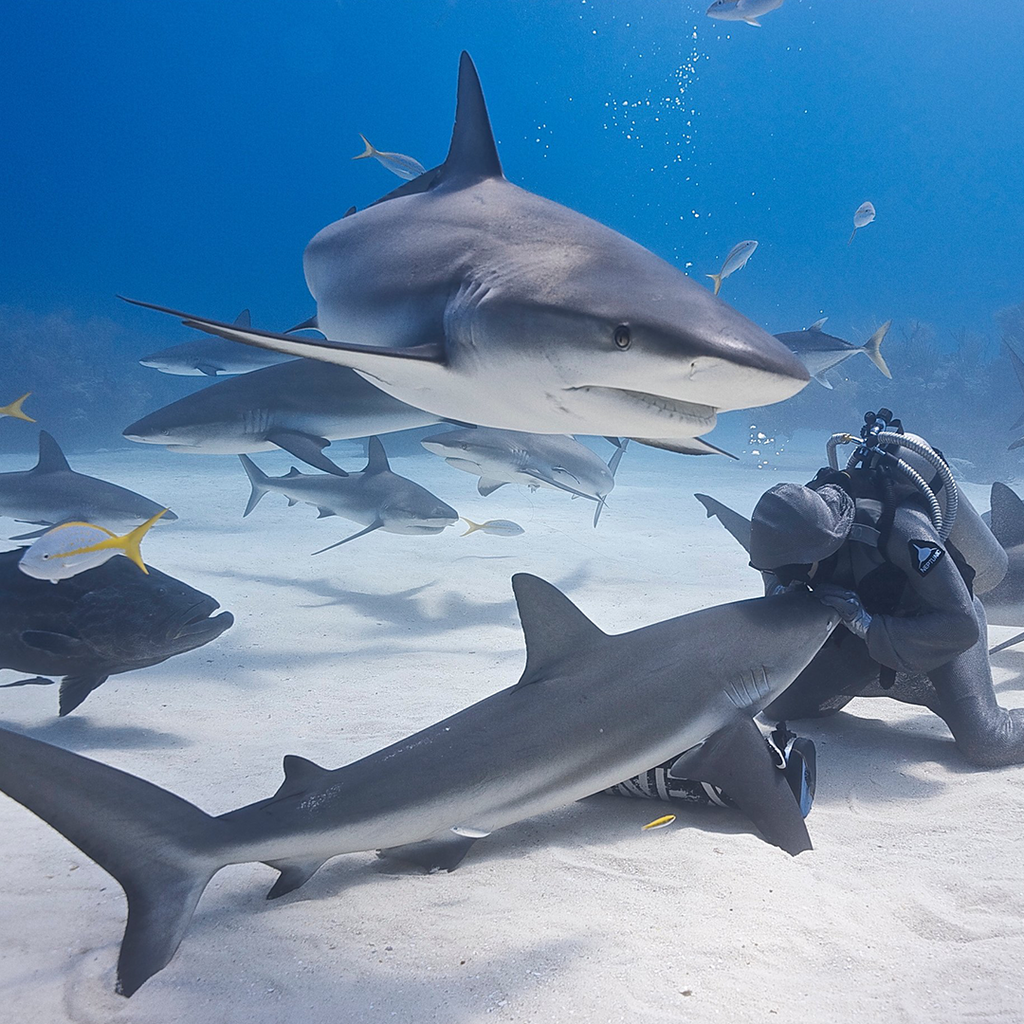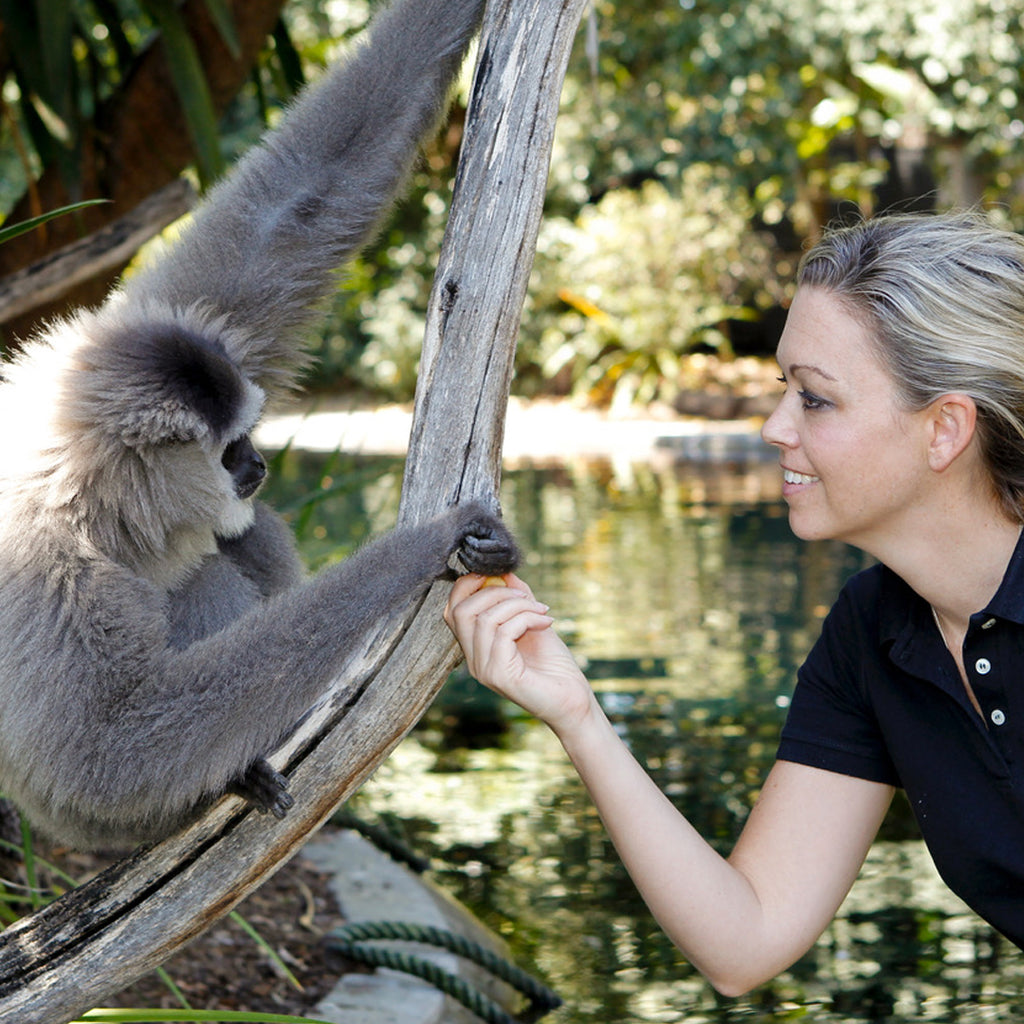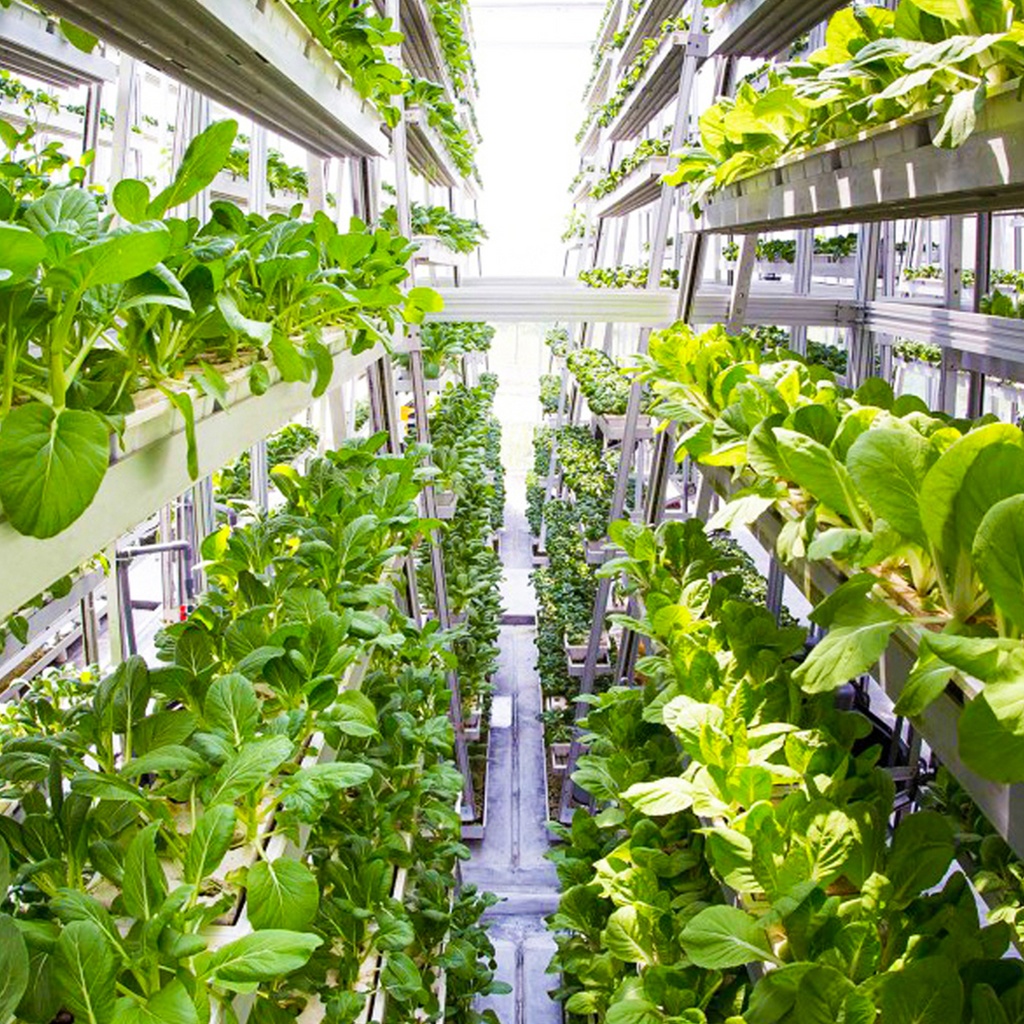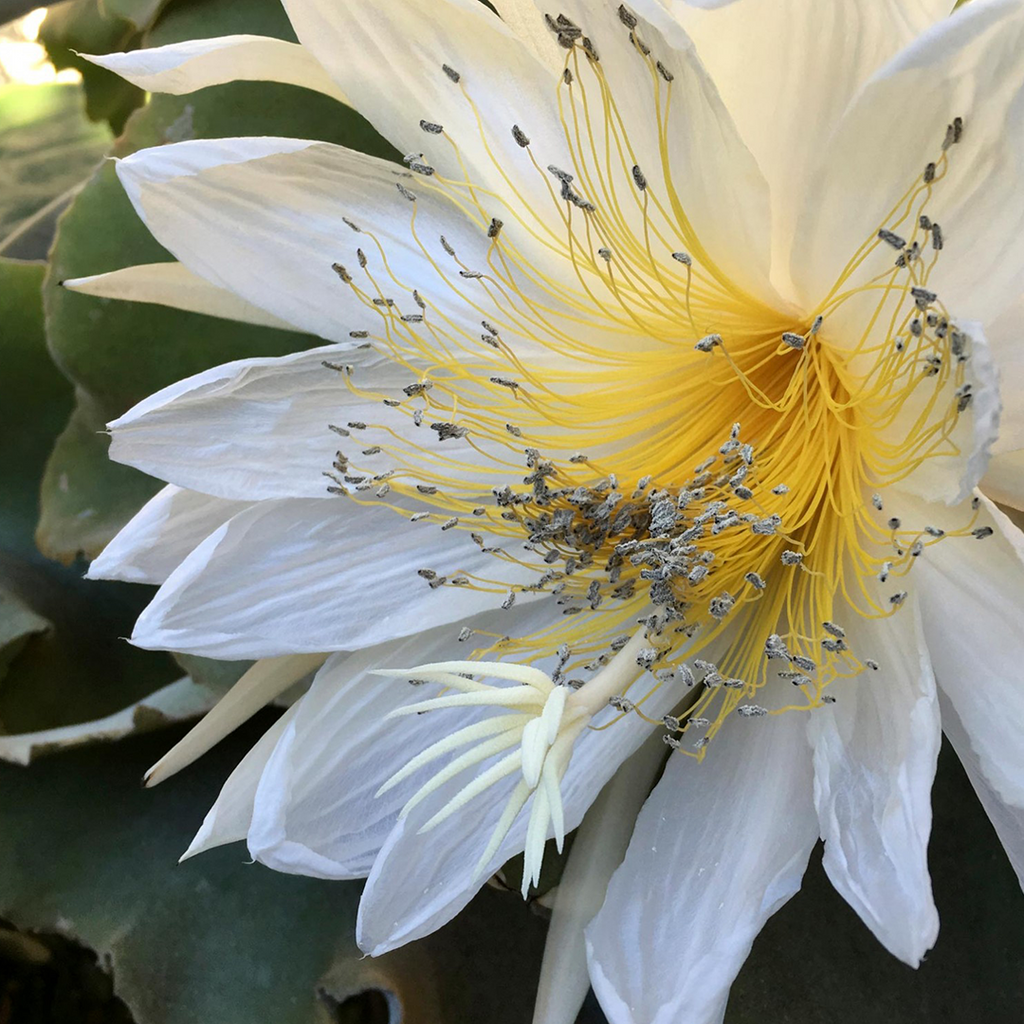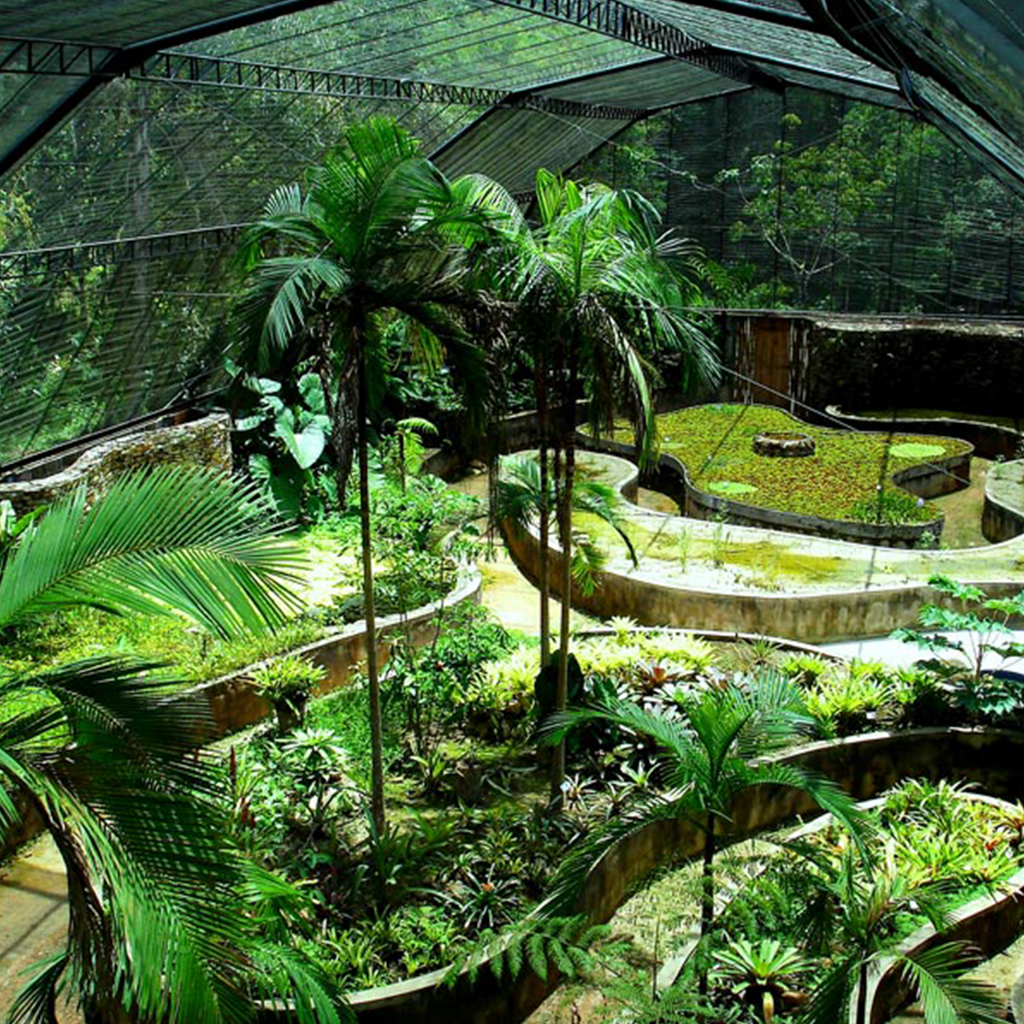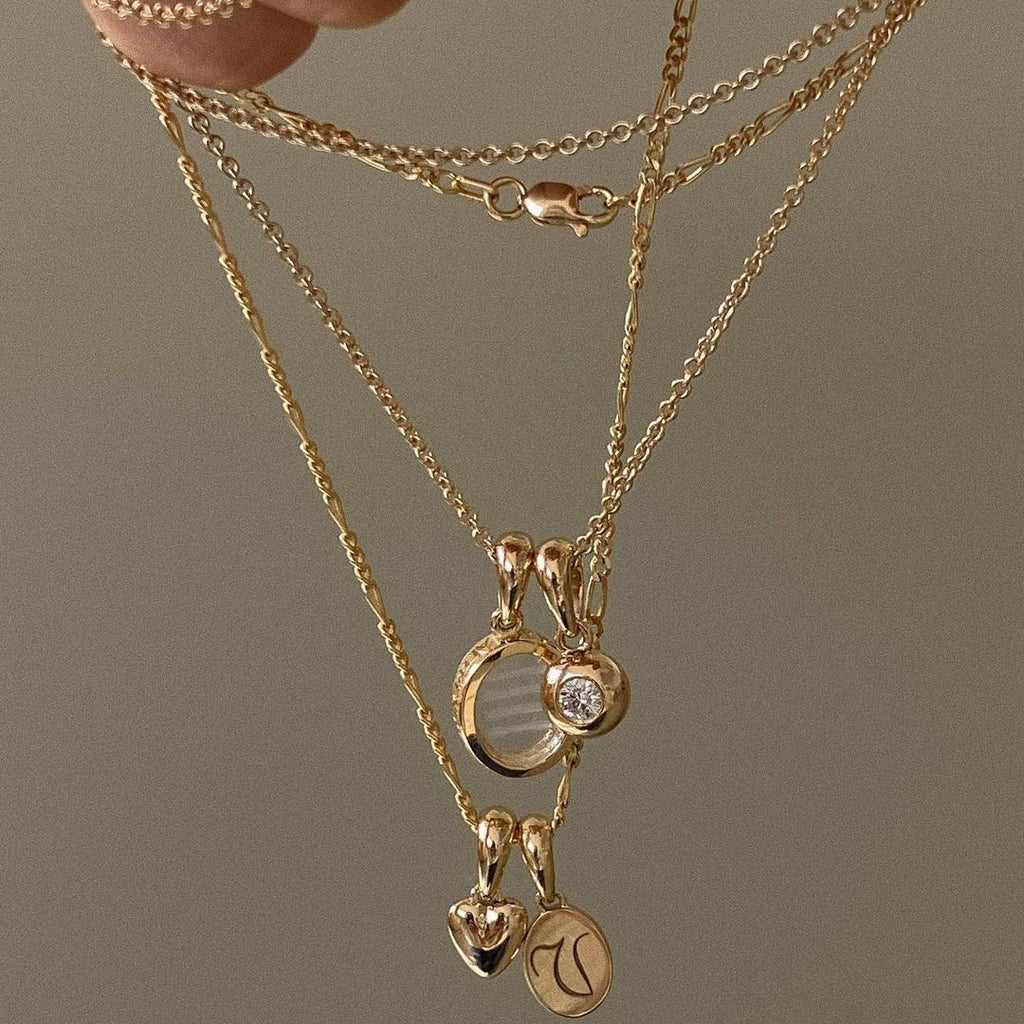Training director at The Perry Institute for Marine Science
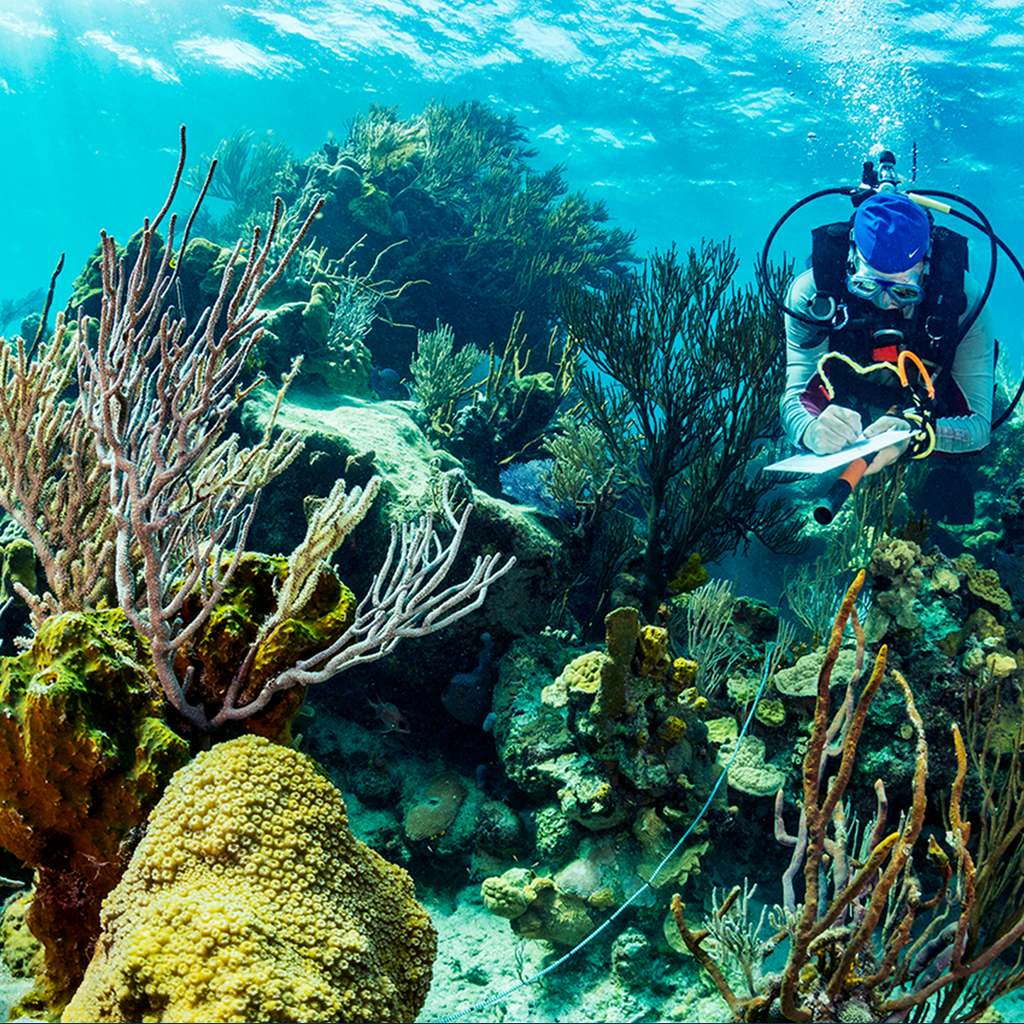
As a Training Director at The Perry Institute for Marine Science Hayley-Jo Carr's main focus is marine conservation and in particular Coral Restoration and Coral Reef Assessments.

Photo: Pia Oyarzun
Where did you grew up?
"Growing up in Cornwall, England, my memories are filled with being at the beach. My family would spend weekends and vacation time camping at the beach and we literally would spend every day surfing, building sandcastles, beachcombing and rock pooling. I would love to learn what each organism was in the rock pools and would spend hours discovering new animals. I have always had a love for animals since I was young and wanted to protect them as best I could, fully aware of their vulnerability from humans. As a teenager I continued to live on the ocean learning how to sail and kayak."

Photo to the left: Katie Storr
How did your passion for the ocean begin?
"After graduating from university, I went backpacking around the world and it was while in Australia that I learnt to dive on the Great Barrier Reef. From the minute I took my first breath underwater I was hooked! I already loved the ocean and animals so now it was both my passions opened up to me in a whole new world to discover. So many fish, corals, sharks, crustaceans to identify and I wanted to see everything. I continued travelling and diving in many different countries each time being exposed to new marine life and ecosystems. All I could think about was continuing to dive around the world, so I became a PADI Scuba Diving Instructor to allow me to do this as well as introduce others to the beauty of the ocean. "

Photo to the right Shane Gross, photo to left Pia Oyarzun
You are a training director at The Perry Institute for Marine Science, can you explain what it is you do at The Perry Institute?
"My work involves education, research and community management. I am still involved in scuba diving training teaching all courses up to professional levels however the role mainly focuses on marine conservation in particular Coral Restoration and Coral Reef Assessments.
I participate and train people in Atlantic and Gulf Rapid Reef Assessment(AGRRA) Programs which champions coral reef conservation and empowers those who protect these diverse ecosystems. We use an innovative regional approach to examine the condition of reef-building corals, algae and fishes and support the conservation of coral reef ecosystems. We curate and distribute data, research and educational materials that support this mission.
There are several major types of coral reefs in the Caribbean, each with a unique geological history and pattern of growth, including patch reefs, fringing reefs, bank/barrier reefs and atolls. The vitality of a reef depends on complex relationships among corals, fishes and algae. Therefore, to evaluate the condition of a reef from a one-time assessment, it is critical that multiple indicators of the corals-algae-fish’s relationships are examined. These different indicators are measured by the AGRRA protocol."

When did you become aware of the of the environmental threats against our oceans - was there a moment in your life when you decided to take action?
"A defining moment in my diving life was seeing huge coral pinnacles , some up to 60ft high, completely covered in massive discarded fishing nets. So much marine life would be trapped underneath, some dead, and as we cut sections of the net away animals would just be shooting out after being trapped for so long. It was very dangerous and time consuming work and it really upset me seeing the destruction humans are causing in the ocean and I was determined after this to do what I can to help protect marine life."
The Reef Rescue Network - what do you do and why?
"Our coral reefs are disappearing. About 50 percent of the world’s coral reefs have already been lost or severely damaged. Many studies over the last 5-10 years are indicating all reefs at risk of loss by 2050. Coral reefs are some of the most biologically rich and economically valuable ecosystems on Earth. They provide food, jobs, income, and protection to billions of people worldwide. They are threatened by an increasing range of impacts including pollution, invasive species, diseases, bleaching, and global climate change. The rapid decline and loss of these valuable, ancient, and complex ecosystems have significant social, economic, and environmental consequences around the world.
Coral Restoration is one part of the puzzle to start to help to rehabilitate coral reefs. Coral nurseries are an important component to marine conservation, as they provide a collection of species that can be added to the reef to help regenerate areas that are stressed or damaged. Coral restoration using Coral Nurseries is a very promising new science. Slow growth rates of coral were once thought to limit our ability to restore corals reefs however it has since been shown that different corals grow at different rates and in favorable conditions can grow much faster than in natural conditions on reefs. Over the last few years many areas of coral reef have been rejuvenated with corals grown from a nursery and have created new habitats for marine life. Outplanted corals have even spawned which is a huge indicator to the positive effects this type of coral rehabilitation can have and how it can help to restore huge tracts of reef. "
Tell us about your latest project?
"My latest project is coordinator of the Reef Rescue Network.
The Reef Rescue Network coordinates coral nursery establishment, maintenance, management, outplanting and monitoring with its partners. Specifically, we assist with developing and implementing criteria for restoration, nursery site selection, harvesting coral from source populations, growing corals in nurseries, outplanting corals to reefs and monitoring the success of restoration at multiple scales from individual corals to ecosystem health. Our network of nurseries provides an important scientific research platform in addition to restoration benefits. We are providing opportunities to build partnerships between scientists, marine resource managers, conservation practitioners, businesses and coastal communities that depend on healthy reefs. We aim to raise awareness to local communities and visitors about the importance of coral reefs and what they can do to help stop further deterioration.
Our work also includes research for the breeding and dispersal of coral larvae, research on longspined sea urchins (Diadema antillarum), parrotfish and other key species on coral reefs as well as reef surveys to assist with the creation of Marine Protected areas for protecting coral reefs.
I have recently authored a PADI Reef Rescue Diver Specialty Course which teaches recreational divers coral restoration and how to maintain and outplant a coral nursery. We aim to be a leader in the creation and implementation of training courses to assist more recreational divers to become involved with scientific diving to help protect the ocean and its inhabitants."

Photo to the left Shane Gross
We are very interested in ultraviolet night diving - can you please tell us a bit more about it?
"Chemical compounds in the tissue of some marine animals (mostly corals) react to UV light. This causes them to fluoresce in bright colours when you dive at night using a UV LED light. Using a UV light is a great way to experience the underwater world in a completely unique way. You can see marine creatures in brilliant, glowing colors, invisible to the naked eye. This effect comes from proteins within many organisms that react to certain wavelengths of light, usually blue, green, orange and red, depending on the protein. Although not all marine organisms exhibit this fluorescence, those that do offer a dramatic visual demonstration. It’s particularly cool to check out shrimps, crabs, worms, fish, jellyfish, cephalopods, tunicates, anemones, sponges and corals. Using a UV light is a great way to experience the underwater world in a completely unique way."
What makes you happy?
"I am happy when I’m enjoying nature and this incredible planet. Whether it is diving in the ocean or climbing volcanoes I just love to travel, explore and enjoy new sights. My husband, family and friends also make me happy and when I can enjoy the great outdoors with them life is just even more perfect."
All images copyright The Perry Institute. Follow Hayley-Jo Carr on Instagram.

